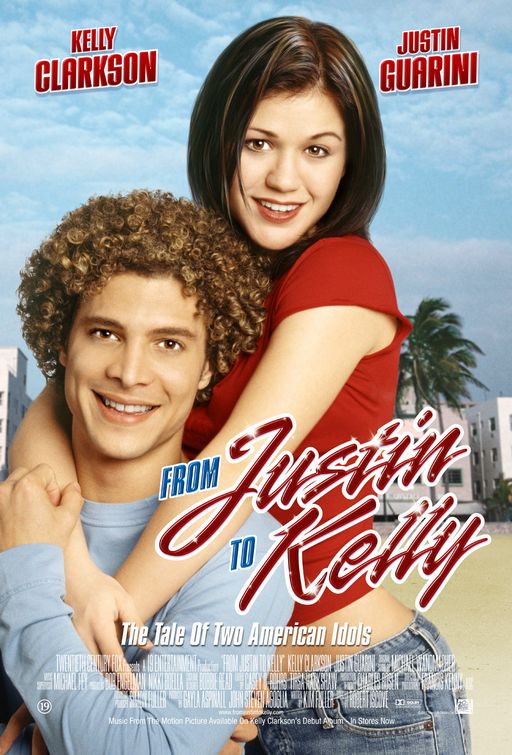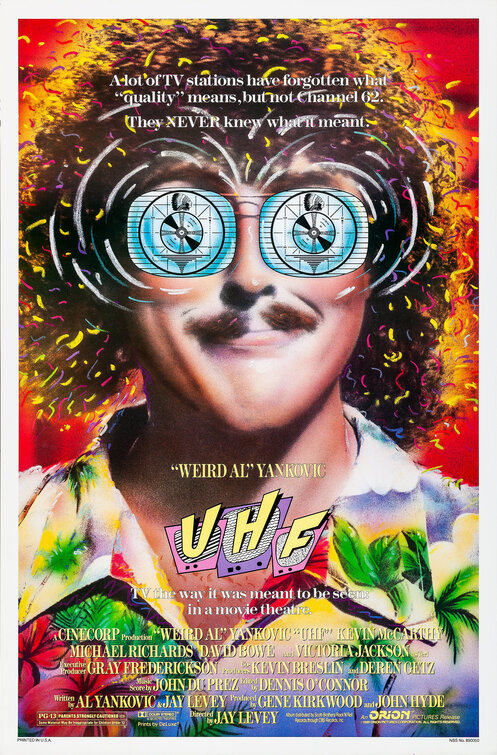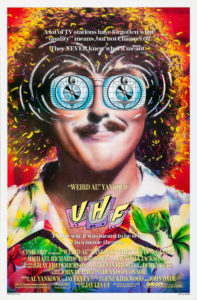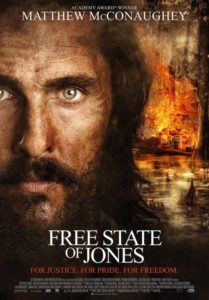You know, all things considered, today is a good day for me. Today, I get to finally talk about one of my favorite subjects: “Weird” Al Yankovic. Oh, how I have loved this man ever since I first heard his song “The Saga Begins,” back when The Phantom Menace was sure to be the greatest movie ever. The singer, songwriter, musician, satirist, and all-around national treasure was a large part of my childhood, and he continues to be a figure of inspiration in my adulthood. The artist’s unbridled enthusiasm for the absurd and the passion he puts into his work has made me and many others laugh, cheer, forget our worries, and be more comfortable with our odd eccentricities over the past few generations. One Christmas, I got the gift of seeing him in concert, and let me tell you, the man knows how to put on a show. I can’t explain it any better than Sam Anderson when he exclaimed “It felt less like a traditional concert than a Broadway musical crossed with a comedy film festival crossed with a tent revival.”
As you can probably tell, I’m a fan, so I’m quite happy that I can finally talk about Mr. Yankovic’s foray into film stardom, and today’s Summer Blockbuster that Wasn’t, UHF. I say finally because I was planning on making this movie my second review, but alas, it was more difficult to obtain than I thought. It’s perhaps fitting that a film so ignored in its time wouldn’t have too many copies available through the Netflix route. Directed by Jay Levey, Al’s manager, and written by the two of them, UHF is a relatively small, low-budget parody and satire, with a basic plot, no real movie stars, countless cutaway gags, and a wacky tone that would only appeal to a very niche audience, at least during an initial release. This is a movie that was produced as if it was destined for cult classic status. Yet, the geniuses at Orion decided to give it a prime summer release. Not during any summer either, but possibly the busiest summer in Hollywood history, where it had to compete with the likes of Honey I Shrunk the Kids, Indiana Jones and the Last Crusade, and of course, Batman.
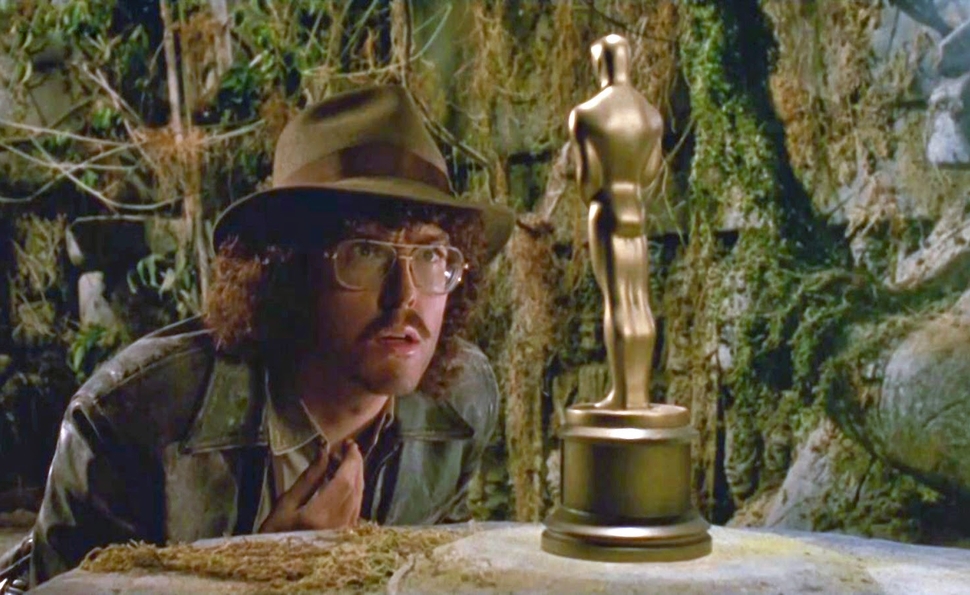
UHF didn’t only have to overcome the stiffest competition imaginable, but also the critics. Both Siskel & Ebert gave it scathing reviews, with Ebert stating that “Those who laugh at “UHF” should inspire our admiration; in these dreary times we must treasure the easily amused.” Other reviews weren’t much kinder. It seems critics didn’t appreciate the random, see-what-sticks style on display here. If they had, they may have understood what this film truly is: a 97-minute peek into the mind of “Weird” Al himself.
The plot of UHF is incredibly simple, and mostly obligatory. To summarize, Al plays George Newman, a burger fool with a very overactive imagination. After getting himself and his friend Bob fired from their latest job, George lucks out when his uncle acquires channel 62, a failing UHF station, from a poker game (For those younger than I am, this is what that means). He allows George to manage it, and despite some setbacks at first, the channel explodes in popularity when he gives the simple but sincere janitor Stanley (Michael Richards, pre-Seinfeld and pre-racist tirade obviously) his own show. With his newfound success, George implements numerous other strange but creative ideas. However, RJ Fletcher (Kevin McCarthy), CEO of major affiliate channel 8, plans to sabotage their newfound popularity by purchasing the deed. It’s up to George and the rest of the staff to earn $75,000 in a telethon to save the station.
This Save the Orphanage plot outline was everywhere in the 80s, from Electric Boogaloo to The Blues Brothers. It’s main usage is as an excuse plot, where the plot is only there to showcase something else, be it a certain style, choreography, or special effects. UHF is no exception. The entire movie is basically “Weird” Al concentrate. The storyline, such as it is, only exists to put Al’s thoughts and ideas into a movie format. I haven’t made an official record or anything, but if I had to guess, I’d say only around an hour of the running time is spent furthering the plot. The rest of the time is devoted to sketches, spoofs, and crazy, throw anything at the wall and see what sticks nonsense. The film is chaotic structurally, the concept is dated (who younger than me knows what a UHF station is?), and the tone is constantly both bizarre and childish. However none of that ends up mattering in the end. Why? Because it’s very, very funny.
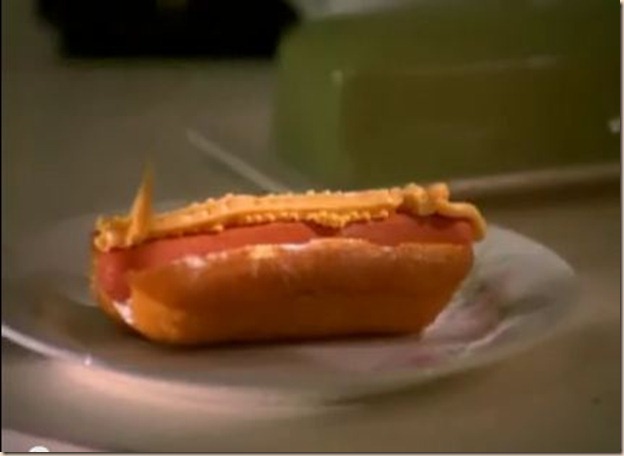
The structure of UHF was oddly prescient, in a way. The disjointed, sketch-like format that seemed like a bug was actually a feature, allowing it a second life today. The cutaways, show ideas, and daydream scenes can now be viewed context-free on Youtube, and they work both in and out of the movie. Most are random. All are absurd. The movie starts with a Raiders of the Lost Ark spoof with Al as Indy. The idol is replaced with an Oscar, as usual, but the boulder chases him throughout several landmarks around the world. There are a bunch of in-universe spoofs, such as Conan the Librarian, and Ghandi II, a Cannon Films style action flick. There is a Let’s Make a Deal type show called Wheel of Fish, in which contestants have to make a choice between fish or a mystery box, and if they make the wrong choice, are loudly called “STUPID” by Kuni, the Karate Sensei host. Al himself gets to play Rambo, with a ridiculous muscle suit and the explosions this implies. Finally, I would be remiss if I didn’t mention the wonderfully dark gag of Raul, the “animal expert” who shows us such facts as how poodles can fly (Unfortunately, much of his part got cut due to Trinidad Silvia’s tragic death)! These are only some of the things that exist in this film’s delightful world.
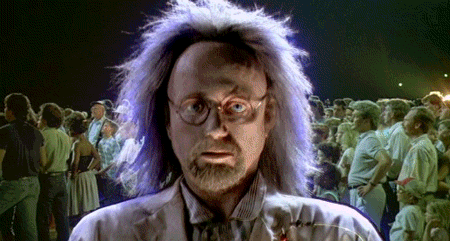
Much like Al’s music, UHF exists in a world that follows its own rules. This is a universe where a barely running local T.V. station can become the number one channel just through creativity and moxie. A universe where audiences will sit down in front of their televisions to watch a kids’ show about a janitor spraying children with fire hoses. A universe where the little guy can beat the system with just a little imagination and sincerity. UHF is not a realistic movie. Not in the slightest. Yet, when Stanley takes over the show and George’s channel shoots to the top, you don’t care. There is no logical reason why “Stanley Spodowski’s Clubhouse” would become so popular, even compared to George’s original version, “Uncle Nutzy’s Clubhouse,” but you can believe it in this world. The hopeful, endearing, and sincere way Richards plays Stanley, the passion the character has for his janitor position and mop, and the way he talks to his audience of children instead of at, allows you to suspend disbelief and join the movie’s world. You believe it, because you want to believe.
As a lead, Al does a decent job. The man has always had a natural charisma about him. He stays in his comfort zone here, playing an exaggerated version of himself, which is for the best for most performers turned actors (not coincidentally, Al promoted the film as “like Purple Rain, but it’s intentionally funny”). He wisely made sure he didn’t have to carry the load alone, surrounding himself with experienced character actors. Nevertheless, he throws himself into each scene. It’s only appropriate that he plays a version of himself, since the entire movie is pretty much a feature version of his creative process. Oddly, the film never quite decides if he’s the straight man or not. At times he’s the oddest man in the room, at others he’s weirded out by what’s going on around him. Granted, this is a universe that seems to have tiers of lunacy, so it still works.
UHF contains a supporting cast of equal parts veterans and future stars, such as Billy Barty and Fran Drescher, and they add their own weird touches to their roles as station workers, and they have good chemistry with the leads. Unfortunately, not everyone is utilized properly. George’s best friend Bob (David Bowe) seems like he’ll be a major character and straight man to play off of, but he’s a non-entity by the halfway point. Victoria Jackson gets little to do as George’s girlfriend Teri except to add in some relationship drama and be supportive in the climax.
One of the main delights in this film is the villain, R.J. Fletcher. The late Kevin McCarthy goes full over-the-top ham as the proudly corrupt station chief, a personification of the cold-hearted executive who looks down on the talented creatives. He plays him with full wide-eyed insanity, insulting and firing everyone in his vicinity. This is a man who fires a janitor because he thinks he threw out important documents, then finds them on his chair a minute later and thinks nothing of it. He berates his own son for gifting him the wrong watch, hires goons to kidnap a UHF station star so he can buy it, and he does it all with such a laughably evil attitude you can’t help but almost root for him. He does get his comeuppance in the end, with a cathartic parade of misfortune. R.J. first has his real, offensive feelings about the public broadcast on live T.V, then loses both George’s station and his own, gets kneed in the crotch, and as the cherry on top, a homeless man he berated earlier bought the watch he wanted. Yet, the final shot of him is of him being comforted and shown empathy by this man he showed none to earlier, weeping into his arms after everything comes crashing down.
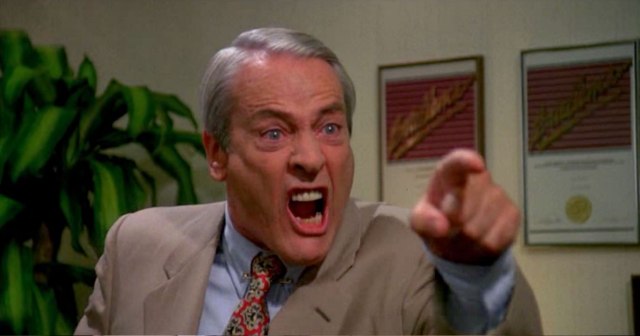
For all the lunacy and crazy weirdness packaged into one movie, it’s this little moment that wraps up the total appeal of “Weird” Al Yankovic. While his music and videos may be bizarre, and his material often ridiculous and even shocking, it’s never mean-spirited. There’s always a huge amount of love and respect in his brand of satire and polka. The main villain being defeated and then shown a small level of support gets right to the heart of what makes Al great. If we all take life a little less seriously, and if everyone were exposed to that kind of fun, love, and empathy, maybe even the worst of us could change for the better.
GRADE: B+
UHF is “Weird” Al Yankovic in movie form. It’s wild, uneven, and at times threatens to burst at the seams. That’s what makes it so much fun. Barely a minute goes by without several gags thrown in, and not all of them land, but plenty do. You’ll likely find yourself smiling a day or two later when a specific scene pops into your head (There was a lot of deleted footage of other gags, in Al’s own words, “because they suck!”). Orion failed this film when it tried to make it a Summer Blockbuster. It should have been placed in a less crowded time with lower expectations. Had this been a September release, maybe it would have built an audience, and we would be living in a world with several other “Weird” Al Yankovic movies. Alas, it was not to be. UHF may not be logical or realistic, but that’s not always important. It’s funny, but more than that, it’s honest.
Well, that about does it for the Summer Blockbusters that Weren’t. I hope you enjoyed this look back at some of the more forgotten films of the Summer Movie Season. Maybe there’s one or two that you’ll decide to give a look. Anyway, I’ll see you back here for…wait, I’ve only done eleven films? I guess I have one more then. But what do I have left?
Oh no…
Noooooo…
NOOOOOOOOO!!!
